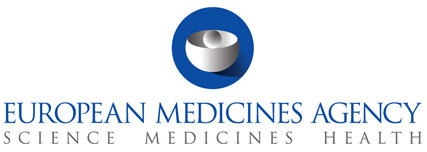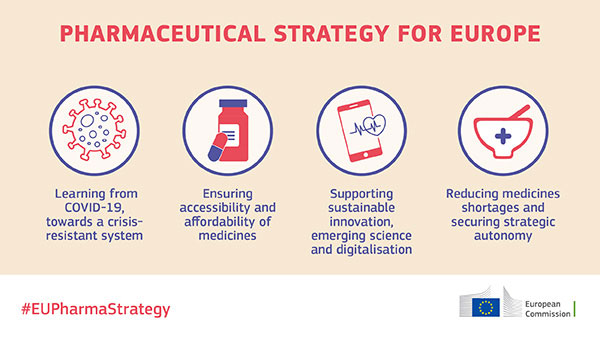EFA’s contribution to the European Medicines Agency

In 2021, EFA was renewed as an eligible organisation and Member of the European Medicines Agency Patient and Consumer Working Party (EMA PCWP) to continue providing essential input to on behalf of allergy, asthma and COPD patients. We also participated in the EMA 2025 priorities consultation and survey on identifying future challenges and key priorities for patient and healthcare professionals’ organisations.
In 2021, EFA participated in:
- 5 PCWP meetings.
- 4 workshops: on real-world meta-data for regulatory purposes, on the setup of an EU Common Standard for electronic Product Information (ePI), on the learnings from Optimal Use of Big Data initiative and on the International Council for Harmonisation (ICH) upcoming guidelines on Good Clinical Practice for clinical trials.
- 2 stakeholder meetings on COVID-19 vaccines and the 2nd EU Big Data Stakeholder Forum
EU Pharmaceutical Strategy

After the launch of the EU Pharmaceutical Strategy in September 2020, the European Commission opened the revision of several key pieces of legislation governing pharmaceuticals in Europe. The first one is the EU General Pharmaceutical Legislation – mainly composed of a directive and a regulation-, where the EU is looking at the effectiveness of these laws.
EFA, in close coordination with the European Patients Forum, participated in the 2021 written consultation to voice the calls from the allergy, asthma and COPD community. EFA highlighted that any criteria to define “patients unmet needs”, to be prioritised in the development of medicines, should have patients and their concerns at the core, and that increasing access to medicines among those who need them.
In 2021, the European Commission also sought input for the review of two specific legislations: the Orphan Diseases and the Paediatric Medicines Regulations. EFA conducted several workshops with Members and met with the EU level respiratory organisations within the European Lung Health Group, and with the European Academy of Allergy and Clinical Immunology (EAACI), to convey shared “patient unmet needs”. Together, we discussed the several barriers in accessing medicines, such as underdiagnosis of disease subtypes, delay and lack of adaption of adult drugs for children, limited access to clinical trials in medicine development, and limited knowledge. We also called for personalised medicines for allergy, asthma and COPD, to reduce side effects, reduce allergens in drugs, and provide timely risk assessment information to patients. Finally, we strongly asked for the development of clearer drug and device manufacturing legislation to provide patients with safe and easy to use lifesaving tools (e.g. adrenaline auto-injectors).
F-Gases
Within the ongoing revision of the review the Fluorinated Greenhouse Gases (F-Gases) Regulation to be closer aligned with EU climate objectives, EFA participated in the official Commission consultation and stakeholder workshops to inform officials about the concerns of asthma and COPD patients who use F-gas containing liquid inhalers that are mainly used as life-saving medication to avoid or stop asthma attacks and COPD exacerbations.
EFA communicated our concerns on the F-Gases consultations and called for fully integrated health considerations in all future EU climate policy. While treatment choices can and should be improved to meet environmental requirements, new legislation should not compromise patients’ access to the care they need.
Alongside the consultative process, EFA facilitated two workshops with the European Commission DG Climate Action, DG GROW, the European Respiratory Society and the International Pharmaceutical Aerosol Consortium to explore different stances on how to reduce F-Gas emissions with minimal impact on patients. The Commission proposal is expected for April 2022.